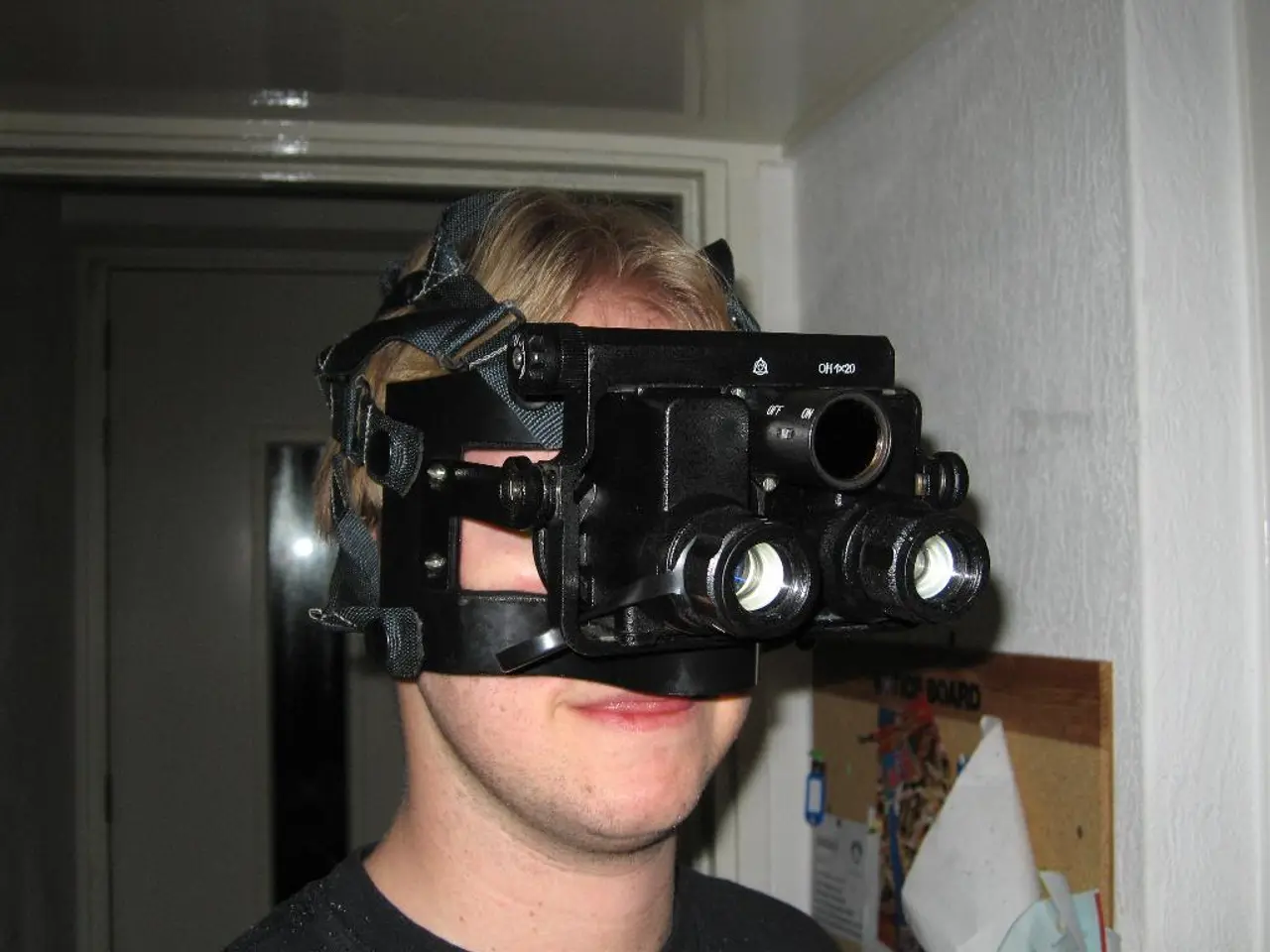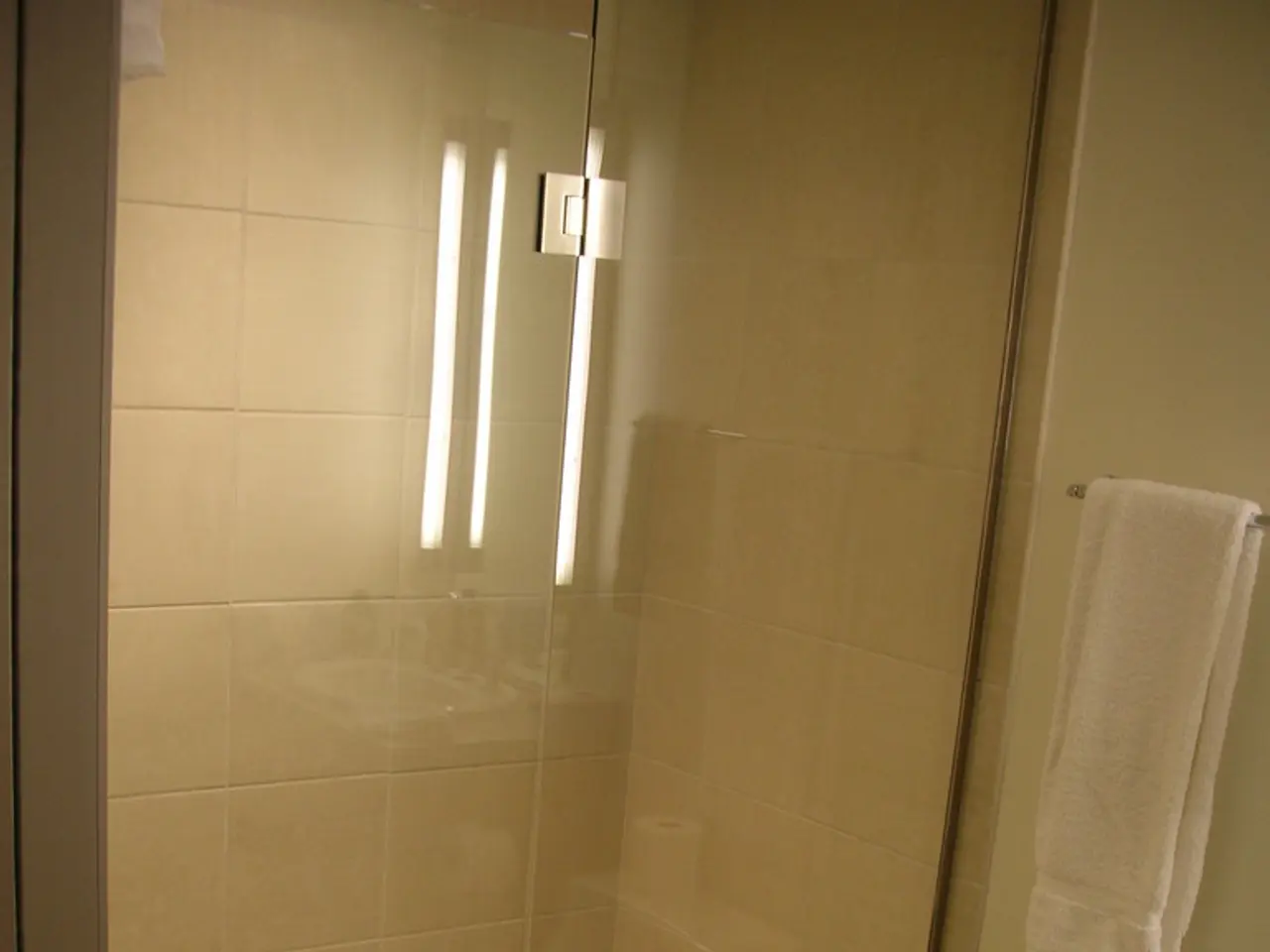Brain chip trial: Elon Musk's Neuralink technology set for use in paralyzed individuals within the UK
In a significant advancement for neurotechnology, Neuralink, the brain-computer interface startup founded by Elon Musk, has initiated clinical trials in the United Kingdom. The trials, which are being conducted in collaboration with NHS hospitals, aim to evaluate the safety and functionality of Neuralink's N1 Implant in patients with severe neurological conditions such as spinal cord injury and Motor Neurone Disease (ALS).
The GB-PRIME study, a multi-site feasibility clinical investigation started in July 2025, is being carried out at University College London Hospitals (UCLH) and Newcastle Hospitals, both selected as lead sites for the trial. The N1 Implant, a fully implantable intracortical brain-computer interface, uses over 1,000 electrodes connected via ultra-thin threads, each finer than a human hair, to record brain signals with robotic precision.
This UK effort builds upon Neuralink's prior clinical trials in the United States, where patients have already been implanted with the N1 device and are successfully using it to operate computers, smartphones, and robotic arms. The trials in the UK received regulatory approvals from the Medicines and Healthcare products Regulatory Agency (MHRA) and other ethics bodies in mid-2025.
As of early August 2025, Neuralink’s UK trials are actively ongoing, representing a significant step toward expanding the accessibility and clinical validation of assistive neurotechnology for people with severe paralysis in Europe. The trial will involve seven participants who have experienced significant movement loss due to spinal cord injuries or neurological conditions such as ALS.
The goal of the trial is to install Neuralink's N1 chip under the skull of each patient and enable them to operate a smartphone or tablet without touching the screen. Neuralink began its first human trials in the United States in 2024 after addressing safety concerns raised by the U.S. Food and Drug Administration.
Notably, Neuralink's technology could be life-changing for people affected by neurological disorders, according to University College London. The company has raised about $1.3 billion in funding from investors, with the most recent funding round bringing in $650 million.
Elon Musk, Neuralink's founder, has suggested that the technology could someday offer enhancements for healthy individuals and possibly enable human-AI "symbiosis," memory uploading, or vision restoration. The UK becomes the first European country to host such a study, marking a new era in neurotechnology and its potential to revolutionise the lives of those with severe paralysis.
- The innovation in robotics, represented by Neuralink's N1 Implant, is being utilized in a research that aims to help individuals with severe neurological conditions, such as spinal cord injury and Motor Neurone Disease (ALS), as part of clinical trials in the UK.
- The advancement in technology and science is paving the way for patients with medical-conditions, like spinal cord injuries and neurological disorders, to potentially operate devices using their thoughts, as demonstrated by the ongoing Neuralink trials in the UK.
- The progress in the field of health-and-wellness, through the implementation of neurotechnology like Neuralink's devices, is increasing accessibility to assistive technology for people with paralysis, not only in the US but also in Europe, with the UK leading the way in this significant effort.
- As Neuralink's technology is applied to improve the lives of those with severe paralysis, there is a potential for future enhancements for healthy individuals and the possibility of human-AI "symbiosis," as envisioned by Neuralink's founder, Elon Musk, marking a new era in the integration of technology and the human brain.




